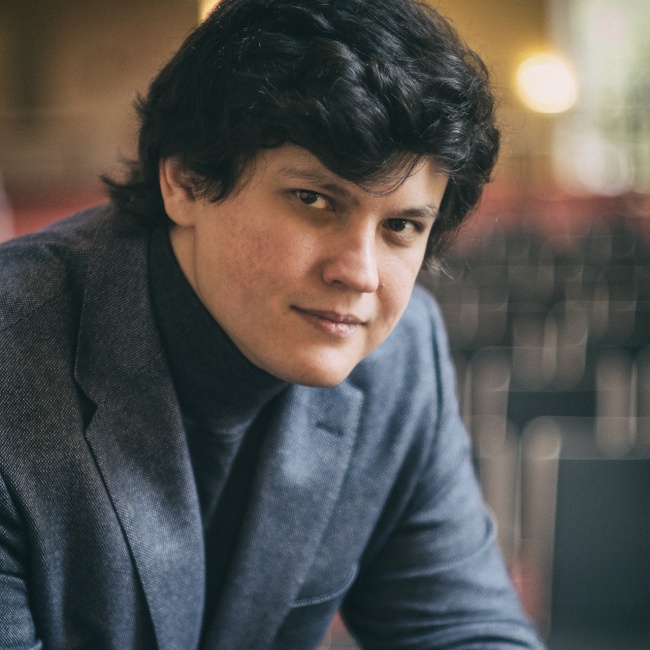Young conductor makes a fiery Utah Symphony debut with Russian program

This weekend’s Utah Symphony program in Abravanel Hall is an all-Russian affair featuring works by three of the country’s best known composers: Modest Mussorgsky, Sergei Rachmaninoff and Sergei Prokofiev.
Leading the orchestra Friday, and making his local debut, is the Uzbekistani conductor Aziz Shokhakimov. Despite his young age (31), Shokhakimov showed remarkable maturity in his command of the works and in his interpretive gifts. He has a wonderfully strong stage presence and coaxed vibrant playing with dynamic articulation from his ensemble.
The soloist this weekend is the equally youthful Czech pianist Lukás Vondrácek who tackled Rachmaninoff’s Rhapsody on a Theme of Paganini. Conceived on a grand scale the Rhapsody is a concerto in all but name, and the composer places great technical demands on the soloist.
Vondrácek acquitted himself admirably with his virtuoso performance that never let the bravura get in the way of the music. He displayed striking musicality and brought a fine balance between the technical challenges of the score and its soaring lyricism. While the fast-paced sections were exciting to listen to, the famous 18th Variation was without question the highlight. One of Rachmaninoff’s most beautiful creations, Vondrácek and Shokhakimov underscored the expressiveness of the music with soaring phrases and sweeping lines that brought definition to the music.
Both soloist and orchestra delivered a well-expressed and defined reading of exuberant vitality. Under Shokhakimov’s direction, the orchestra mirrored Vondrácek’s playing in capturing the work’s fiery passion and disarming lyricism.
The other large-scale work on the program was Prokofiev’s Symphony No. 5. While his “Classical” Symphony receives an occasional performance with the Utah Symphony, the six others by Prokofiev rarely see the light of day here.
Arguably the composer’s finest symphony, the Fifth was written and premiered in 1944, and contains some of Prokofiev’s most heart-wrenching and poignant music, while also delivering a ray of energized sunshine in the finale.
Shokhakimov directed an expansive reading that encompassed the work’s powerful emotions, eliciting finely crafted playing from the orchestra. In the opening Andante, the conductor laid out the music in an account that flowed easily between dark tinged intensity and bright lyricism. Though deliberately paced, his interpretation allowed the conductor to build powerful crescendi and satisfactory resolutions.
The second movement has a militaristic edge to it and a restless energy that gives the music nervous tension. Shokhakimov got the orchestra to play with mechanical precision that served the music well in both its vehement outbursts and lyrical contrasts. The following Adagio is weighted down with a heaviness and sense of tragedy that seems to be a culmination of what has preceded it. And Shokhakimov captured the heaviness of the music with broad gestures allowing the orchestra to expand the feeling of foreboding.
The closing movement, on the other hand, is unapologetically bright and optimistic, a triumph over the moodiness of the other three movements. Shokhakimov’s dynamic approach delivevered a vibrant reading and did an excellent job bringing out the nuanced expressiveness of this fascinating score.
The concert opened with a dramatic account of Mussorgsky’s Night on Bald Mountain characterized by precise articulation and relentless drive, nicely setting the tone for the rest of the program.
The program will be repeated 7:30 p.m. Saturday in Abravanel Hall. utahsymphony.org; 801-355-2787.